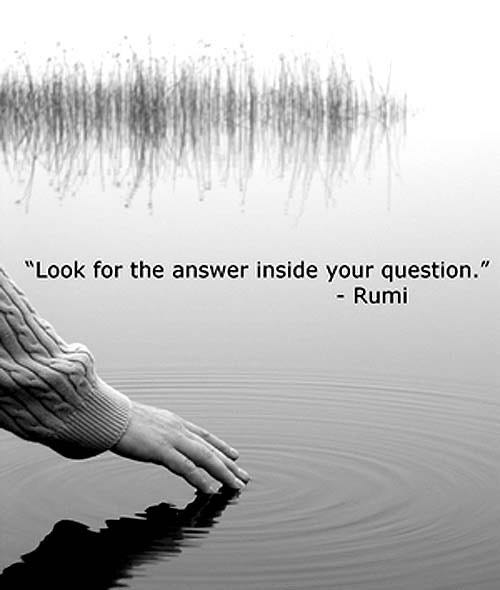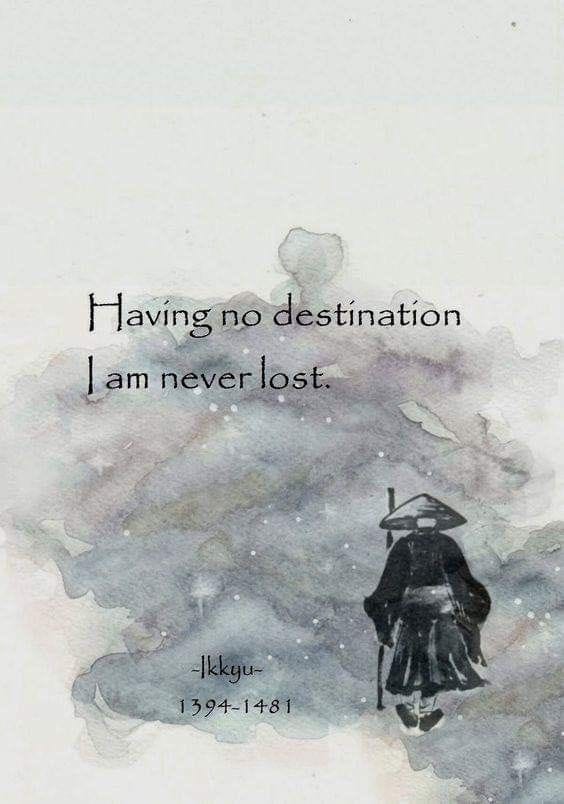A good traveler has no fixed plans and is not intent on arriving." – Lao Tzu
When I was eleven, I wanted to become an astronaut. Stars always made me wonder.
Maybe someday, alive or dead, I’ll see the stars above my head
I look in their eyes and ask them how,
they winked all the night in the sky bed
I’ll scape the world of gray and white,
by splashing colors, green and red
As it’s proven and always been said,
follow your heart, you are the way.
But I also wanted to learn what’s going inside our bodies, how the body, mind and spirit work together to shape a behavior, a person and their world.
I was always a nature lover, so learning about plants, animals, and everything in nature was interesting to me.
As you can guess, I loved to write stories and poems, mostly in Persian.
So did I want to become a doctor? An astronaut? A cosmologist? A writer? A naturalist? Maybe a scientist would do better.
I didn’t know what I wanted to become, or better say, which mold to fit.
Now I know that I’m not going to consent to these expectations, I’m becoming more and more confident in my authentic self.
Even now, I have a vision and a general direction but I don’t exactly know what tasks to accomplish in a day-to-day basis to make that vision a reality; “ am I even qualified and capable of doing this?” I sometimes ask myself.
But if I wasn’t, would God put that light in my soul and guide me through all the challenges and opportunities that help me shape this vision and adapt it into my life? I don’t think so.

I’m sure I’m not the only one with a diverse-mixed puzzle of interest, talents and creativities. If you’re reading this, you are a genius creative human.
Why holding back and hiding your gift from the world?
As Matt Gottesman says, let the world experience God through you.
As I’m going through this phase of my life, I designed this post to help you embrace your multiple interests and use them as a strength. Hope it resonates with you.
Here’s how to get the most out of it:
📖 Reading time: ~7 minutes ( but take your time :)
✏️ Exercises & Reflection: depends on you: your path, your pace 💚✨
What you’ll learn:
Why having multiple passions is an advantage, not a weakness
How generalists thrive in an ever-changing world
A practical step to start integrating your skills today
How to apply it:
Read through the sections, reflect on how they apply to your own journey, and try the Skill Map Exercise at the end to bring clarity to your unique strengths.
Let’s begin! 🚀
How we feel? Three superpowers
We’re curious, ambitious and determined. We go through phases of hope and despair. One day we’re exploded with ideas on top of the world. The other day we feel useless and need to disconnect from the world. We think that everyone has figured out what they want to do but us. But is there any bright side to this?
As Emilie Wapnick says, a multipotentialite ( also called: polymath, Renaissance person, or "scanner.") is someone with many interests and creative pursuits. Although is often viewed as a limitation, but it can be a strength.
Three Superpowers of Multipotentialites
Idea Synthesis
Ability to combine different fields to create innovative solutions.
Example: Founders of Meshu combined interests in cartography and design to create custom jewelry.
Rapid Learning
Quick absorption of new information and skills due to frequent engagement in new areas.
Example: Nora Dunn transitioned from concert pianist to freelance writer, applying skills from various fields.
Adaptability
Ability to take on various roles and adjust to different situations.
Example: Abe Cajudo works in multiple capacities, showcasing the value of versatility.
The Importance of Multipotentialites in Society
Society benefits from encouraging multipotentialites, especially in addressing complex problems.
Specialists and multipotentialites can work together effectively, combining depth and breadth of knowledge.
Conclusion and Call to Action
Individuals should embrace their unique wiring, whether as specialists or multipotentialites.
Multipotentialites are encouraged to explore their passions and curiosity.
Embracing one's true self leads to a more authentic and fulfilling life, and the world needs diverse thinkers.
How we experience the world?
Living with many interests means living with endless curiosity. We see connections everywhere—between the stars and the oceans, between poetry and science, between the heart and the mind. The world isn’t made of separate pieces, and we don’t experience it that way either.
But this curiosity comes with challenges. The world often expects us to pick one path, one identity, one goal. Yet, we resist. We explore. We stand at crossroads, wondering if choosing one thing means losing another. This uncertainty can feel overwhelming, especially when others seem to have their lives figured out. But what if being “lost” just means we are explorers?
Then there’s self-doubt—the voice that whispers, You’re not enough. You should have figured this out by now. The truth? No one truly has. Those who seem certain are often following pre-made paths. Or they’ve gone through these phases of ambiguity and doubt, experimenting with different ideas until they found one that works for them. We, on the other hand, are creating our own. And that takes courage.
Creativity takes courage.
So, what stops us? Fear. Fear of failure, judgment, or not being “good enough.” But fear only has power if we let it.
Try this exercise to face your fears:
Write down what you’re afraid of. Is it failure? Wasting time? Not being taken seriously? Name it.
Ask yourself: What’s the worst that could happen? And if it does, what will you do?
Flip the script. What’s the best thing that could happen if you fully embraced who you are?
Remember to work on the most fundamental fear, pick one.
Multipotentialites don’t fit in boxes—we build bridges. Between fields, ideas, and possibilities. The world isn’t full of limits; it’s full of paths waiting to be explored.
Are we falling behind or getting ahead?
大器晚成
(Taiki bansei)
Great talent matures late.
Blenders: Merging Multiple Interests to Innovate
Embracing a variety of passions allows us to approach challenges with unique perspectives. By blending our diverse interests, we can craft innovative solutions that others might overlook. While some may urge us to simplify our methods, it's this very complexity that equips us to tackle intricate problems effectively.
Deliberate Generalists, not focused specialists
In today's rapidly evolving landscape, being a deliberate generalist is increasingly advantageous. As Dan Koe highlights, generalists thrive by integrating various skills and knowledge areas, making them adaptable and resilient in the face of change. This adaptability is crucial as AI continues to automate specialized tasks, positioning generalists to excel in roles requiring creativity and strategic thinking.
David Epstein, in his exploration of diverse developmental paths, emphasizes that many successful individuals engage in a "sampling period," experimenting with different fields before specializing. This breadth of experience fosters innovation and problem-solving abilities, essential in our complex world:
10,000 Hours Rule: The idea that achieving greatness in any field requires 10,000 hours of focused practice, exemplified by figures like Tiger Woods and the Polgár sisters in chess.
Curiosity in Sports: Research shows elite athletes often have a "sampling period" where they try various sports before specializing, contrary to the 10,000 hours narrative.
Music Development: Exceptional musicians also tend to have a sampling period before dedicating significant time to practice, challenging the notion of early specialization.
Education Systems: A study comparing early vs. late specialization in education found that while early specialists may have short-term advantages, late specialists often achieve better long-term outcomes due to better career fit.
Diverse Developmental Paths: Many successful individuals, like Duke Ellington and Frances Hesselbein, had varied interests and experiences before finding their true calling.
Wicked vs. Kind Learning Environments: The modern world is increasingly a "wicked" learning environment, where adaptability and broad skills are more valuable than narrow specialization.
Impact of Specialization: Over-specialization can lead to poor long-term outcomes, as seen in studies of forecasters and in medical practices where specialized procedures may not always yield better results.
Innovation and Breadth: Research shows that impactful innovations often come from individuals with diverse experiences rather than deep specialization.
Interleaved Practice: Studies indicate that interleaved practice (mixing different types of problems) leads to better long-term learning outcomes compared to blocked practice (focusing on one type at a time).
Need for Diverse Skillsets: In a complex world, both specialized and broad skillsets are necessary for success, as emphasized by physicist Freeman Dyson's analogy of needing both "birds" (broad thinkers) and "frogs" (detail-oriented specialists).
Similarly, Mohammadreza Shabanali discusses the importance of identifying niche markets over merely following trends. He suggests that while trends can guide us, carving out unique niches allows for sustained success and differentiation in the market.
Direction-Driven Journey Over Goal-Centered Marathon
Psychologist Adam Grant advises focusing on aligning our goals with our core values rather than rigidly adhering to predefined plans. He notes that overplanning can lead to tunnel vision, causing us to miss unexpected opportunities. By embracing a direction-driven approach, we remain open to new possibilities and personal growth, allowing our paths to evolve organically.
In essence, by blending our varied interests, adopting a generalist mindset, and prioritizing direction over rigid goals, we position ourselves to navigate and thrive in an ever-changing world.
A simple summary of what’s been said:
If you’ve ever felt torn between multiple interests, you’re not alone. Society often pushes specialization, but history and research show that generalists—those who explore various fields—are uniquely equipped to innovate, solve complex problems, and adapt in an unpredictable world. By blending different skills and focusing on direction rather than rigid goals, multipotentialites can turn their diverse passions into strengths.
One Practical Step:
Create a "Skill Map" for Yourself
List all your interests and skills, then draw connections between them. Ask yourself:
How can I combine these to solve a problem or create something new?
Which industries or roles value this mix of abilities?
What small project can I start today that blends my interests?
This exercise helps you see the potential in your unique combination of talents and take action toward a fulfilling path. Please remember that you don’t have to have all the answers; live the questions now, the answers will follow. 1
Inspired by Letters to a young poet.







How do you manage to explain me to myself so well, young Haniyeh?
The reason you don’t fit the mold? You broke it and molded new potentials and realities for yourself.
You, my darling, are my star!
Oh this article is wonderful. Great job. I really learned a lot and gave me some insights to ponder. Thank you.